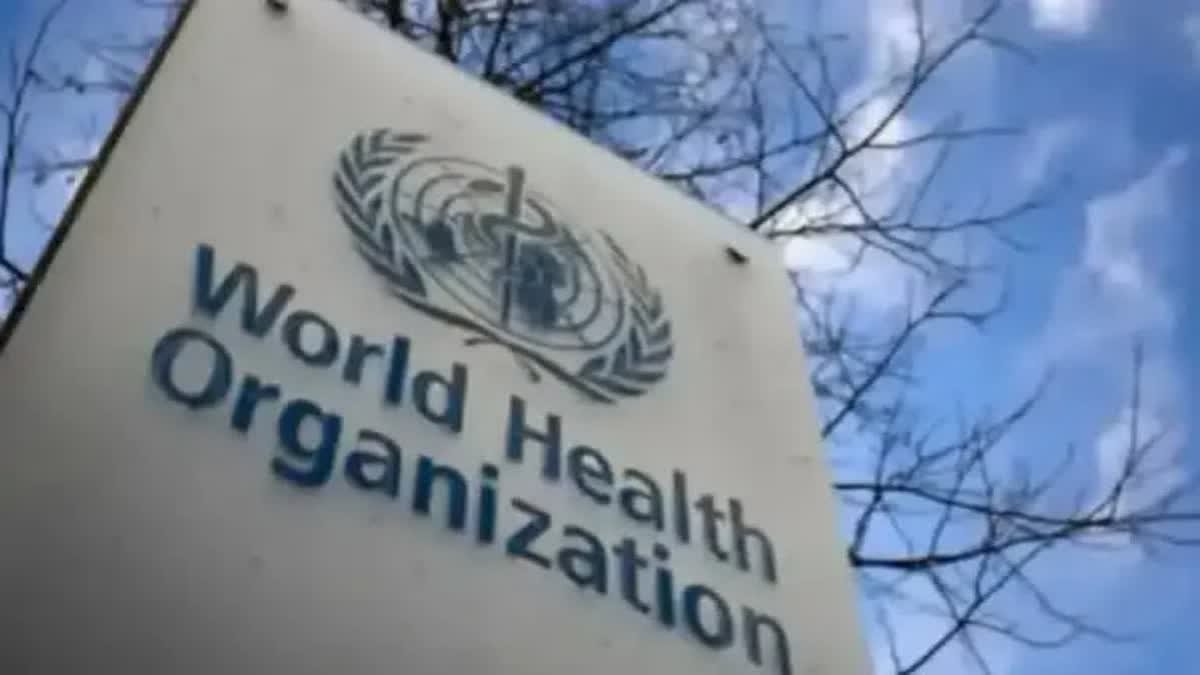New Delhi: On the eve of World Health Day, WHO on Thursday called for concerted and urgent efforts to bridge gaps accentuated by the COVID-19 pandemic and achieving health for all through universal health coverage. WHO Regional Director for South-East Asia Dr Poonam Khetrapal Singh said the world health body is fully committed to achieving health for all through universal health coverage (UHC) and facilitating access to essential health services for all without financial hardship.
On the World Health Day, the World Health Organisation (WHO) celebrates 75 years of improving public health and well-being globally. For decades, and even before the 1978 Declaration of Alma-Ata, leaders and policy makers from across the region have recognised the critical role that access for all to quality, affordable and comprehensive primary health care (PHC) can play in achieving UHC and therefore, health for all, she said. This has been well reflected in the region's renewed and decade-long push to achieve UHC, which since 2014 has been one of eight flagship priorities of the region, Singh said.
Between 2010 and 2019, the region increased its UHC service coverage index from 47 to 61, while between 2000 and 2017, the region reduced the number of households impoverished or further impoverished from out-of-pocket spending on health from 30 to six per cent, the WHO official said.
Since 2014, the density of doctors, nurses and midwives in the region has also improved by over 30 per cent. Singh said five countries of the region have achieved the sustainable development goal targets for under-five and neonatal mortality. Between 2000 and 2020, the region achieved a 34 per cent decline in TB incidence rates, and by the end of 2020, had met each of the global technical strategy for malaria milestones for mortality and morbidity.
Also read: Climate change can drive global outbreaks in dengue, Chikungunya: WHO
Since 2016, six countries of the region have eliminated at least one neglected tropical disease and all countries continue to strengthen PHC services to prevent, detect, control and treat noncommunicable diseases, Singh said. "The region has many more mountains to climb. Today, in the shadow of the COVID-19 crisis, around 40 per cent of people in the region are unable to access essential health services," she said.
"In 2017, around 299 million people in the region faced catastrophic health spending, and an estimated 117 million people in the region were pushed or further pushed below the purchasing power parity poverty line of USD 1.90 a day a figure that has since been exacerbated," Singh said.
She said as highlighted by the region's 2021 strategy for primary health care, as well as the region's vision to build back better from the COVID-19 pandemic, whole-of-government, whole-of-society action is needed to drive rapid and sustained progress towards UHC and health for all.
High-level leaders should maintain and strengthen political and financial commitments to achieve UHC, accelerating momentum ahead of the second UN General Assembly meeting on UHC in September this year, the WHO official said. The COVID-19 crisis has shown that investments in UHC and health system resilience underpin not just health, but social and economic security, as well as the achievement of an array of SDGs, Singh said.
Policy makers and programme managers must continue to implement the Region's Strategy for PHC, she said. Of specific focus should be strengthening public health infrastructure, workforce and financing, while at the same time increasing equity for those at risk of or who are already being left behind, she said.
Partners, donors and other stakeholders in the region must go all in on UHC and health for all, recognising that the PHC approach is the most effective, efficient and equitable way to build national health systems that are unified, and which achieve healthier populations, health security and UHC, Singh said. In all countries, policy makers must lead, and partners must support, the WHO official said. She said assistance must be fully aligned with national priorities, avoiding duplication and fragmentation. (PTI)



